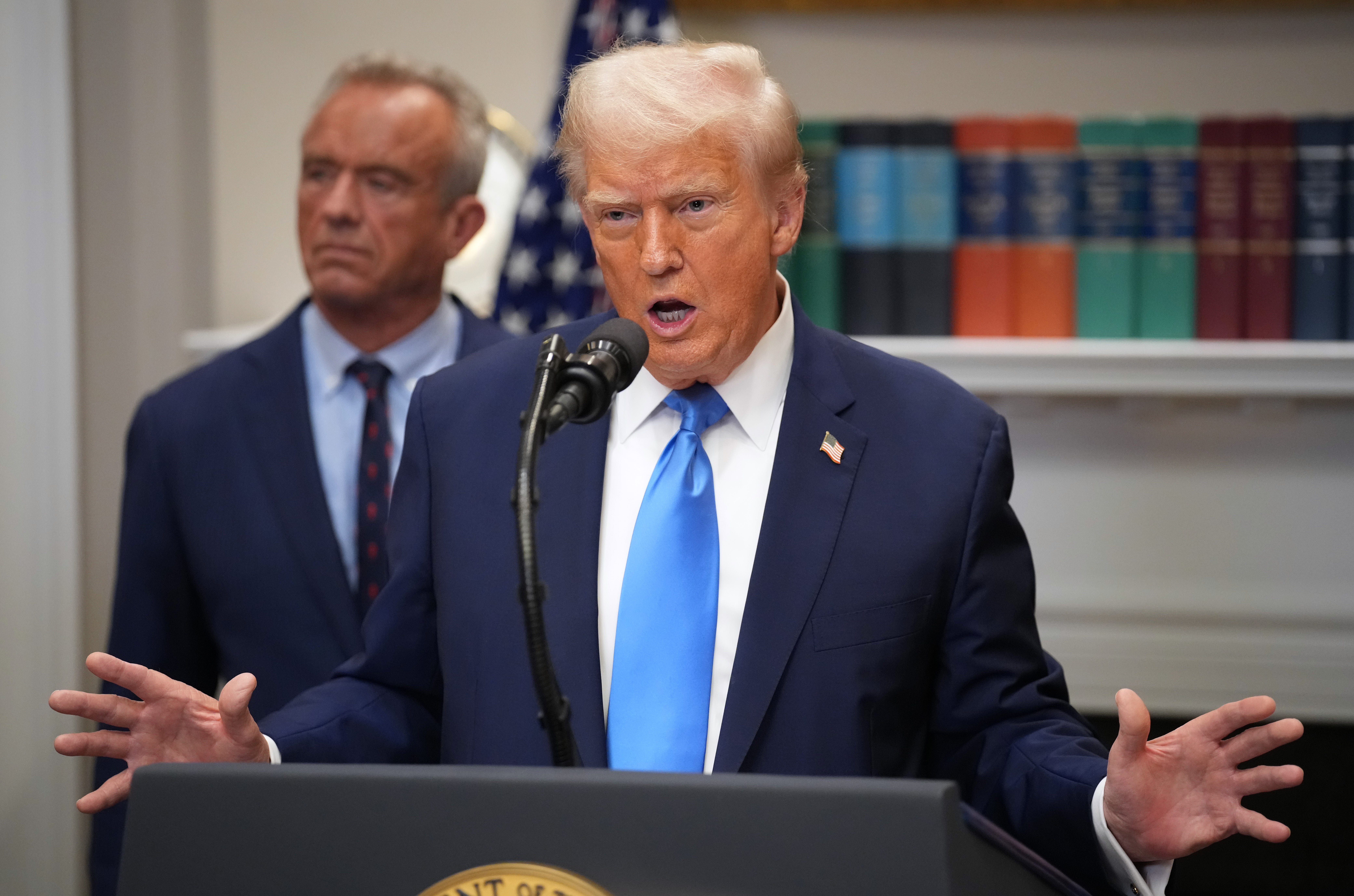
Andrew Harnik/Getty Images
- Trump’s recent claims that Tylenol poses an autism risk are a PR nightmare for the brand.
- The brand’s original owner set a standard for crisis management after the 1982 Tylenol murders.
- Experts suggest Kenvue focus on clear messaging to maintain public confidence.
Tylenol once survived a poisoning scandal. Now it has to survive President Donald Trump.
Kenvue, the company behind the household brand, at least has a playbook to turn to for guidance. That’s because Tylenol’s original owner, Johnson & Johnson, developed it decades ago after seven people in the Chicago area died from taking its capsules because someone had laced them with potassium cyanide. The 1982 unsolved mystery became known as the “Tylenol murders.“
J&J’s handling of the incident not only saved the brand — and protected consumers from future tragedy — but also set the gold standard for crisis management that is still taught in business schools.
In response to Trump’s comments on Monday, Kenvue disputed the president’s claims that Tylenol is unsafe by sharing information it believes is accurate about the drug and saying it “strongly disagrees” with Trump’s assertion that the active ingredient in it, acetaminophen, may cause autism in children if taken by a pregnant mother.
Business Insider looked back at the Tylenol murders and spoke to communications experts about how J&J’s response set them up to regain customer trust and create a safety innovation for the industry — and how things could play out this time around.
Respond quickly and keep the message focused
Information travels much faster now than in the early 1980s. Before Trump finished speaking on Monday, when he warned Americans not to take Tylenol about a dozen times in a press conference, his remarks were already making waves online.
By contrast, four decades ago, J&J first learned of the crisis when a Chicago news reporter called for comment about a medical examiner’s report on the deaths, according to a Department of Defense analysis of the infamous incident.
This time, Summit, N.J.-based Kenvue issued its statement defending Tylenol in a matter of hours.
“Acetaminophen is the safest pain reliever option for pregnant women as needed throughout their entire pregnancy,” the company said. “The facts are that over a decade of rigorous research, endorsed by leading medical professionals and global health regulators, confirms there is no credible evidence linking acetaminophen to autism. We stand with the many public health and medical professionals who have reviewed this science and agree.”
That was the right move from a public-relations perspective, said Kara Schmiemann, a senior director at crisis communications firm Red Banyon.
“You have to be extremely conscious of making sure that your messaging is focused on the right thing, which is the people and their health and their well-being,” she said.
A confusing, misleading, or inaccurate response can be tough for a company to overcome, added Schmiemann, because that can lead to mass hysteria and raise more questions for consumers.
For example, United Airlines faced heat in 2017 after a passenger was forcibly removed from an overbooked flight. The company’s CEO at the time, Oscar Munoz, spurred public backlash by labeling the passenger “disruptive” and “belligerent” in his initial recap of the event, which did not include an apology. United later took out a full-page ad in several major US newspapers to apologize to the public.
“You can’t put the genie back in the bottle,” Schmiemann said.
J&J ‘created an industry out of their crisis’
If Kenvue is following J&J’s handbook, the next phase of its strategy will be multi-pronged and focused on strategies to assure the public of Tylenol’s safety.
In 1982, J&J quickly placed ads in major newspapers warning consumers not to buy Tylenol. The company also set up a 1-800 hotline for consumers and established a toll-free line for news outlets to receive pre-taped daily messages with updated statements. A post-crisis study by J&J concluded that more than 90% of the American population had heard of the Chicago deaths within one week.
Meanwhile, J&J recalled millions of bottles of Tylenol from store shelves, a costly move. The Defense Department analysis said that before the murders, Tylenol accounted for 19% of J&J’s corporate profits during the first three quarters of 1982. The drug was the leading painkiller in the market at the time, commanding 37% of market share and outselling the next four leading painkillers combined, it said.
J&J “put actions behind words,” Michele Ehrhart, chief marketing and communications officer at the University of Memphis and author of “Crisis Compass: How to Communicate When It Matters Most,” told Business Insider.
Later, J&J developed a new seal for Tylenol bottles, inspiring other drug makers to follow its lead. It did so because the murders were the result of someone taking Tylenol from stores, placing cyanide in the capsules, and reshelving them for unsuspecting buyers.
J&J “created an industry out of their crisis,” said Ehrhart. “That’s pretty brilliant.”
For Kenvue, she added that setting up a consumer hotline isn’t necessary. Concerned parents will likely prefer to call their pediatrician. Instead, the company should double down on its message.
“Say what you need to say and keep repeating that until you have more information to share,” Ehrhart said. “If this keeps persisting and they want to do more, they could participate in other studies to ensure what they know to be true gets carried out.”
Ehrhart expects Tylenol to get past this latest turbulence like it did in the 1980s.
“We’re all still taking the product,” she said. “It could’ve been gone, but it’s still here. I have a feeling Tylenol is going to weather this one, too.”
Read the original article on Business Insider
The post J&J survived the ‘Tylenol murders’ and pioneered crisis communications. Trump’s autism claims are round 2. appeared first on Business Insider.




